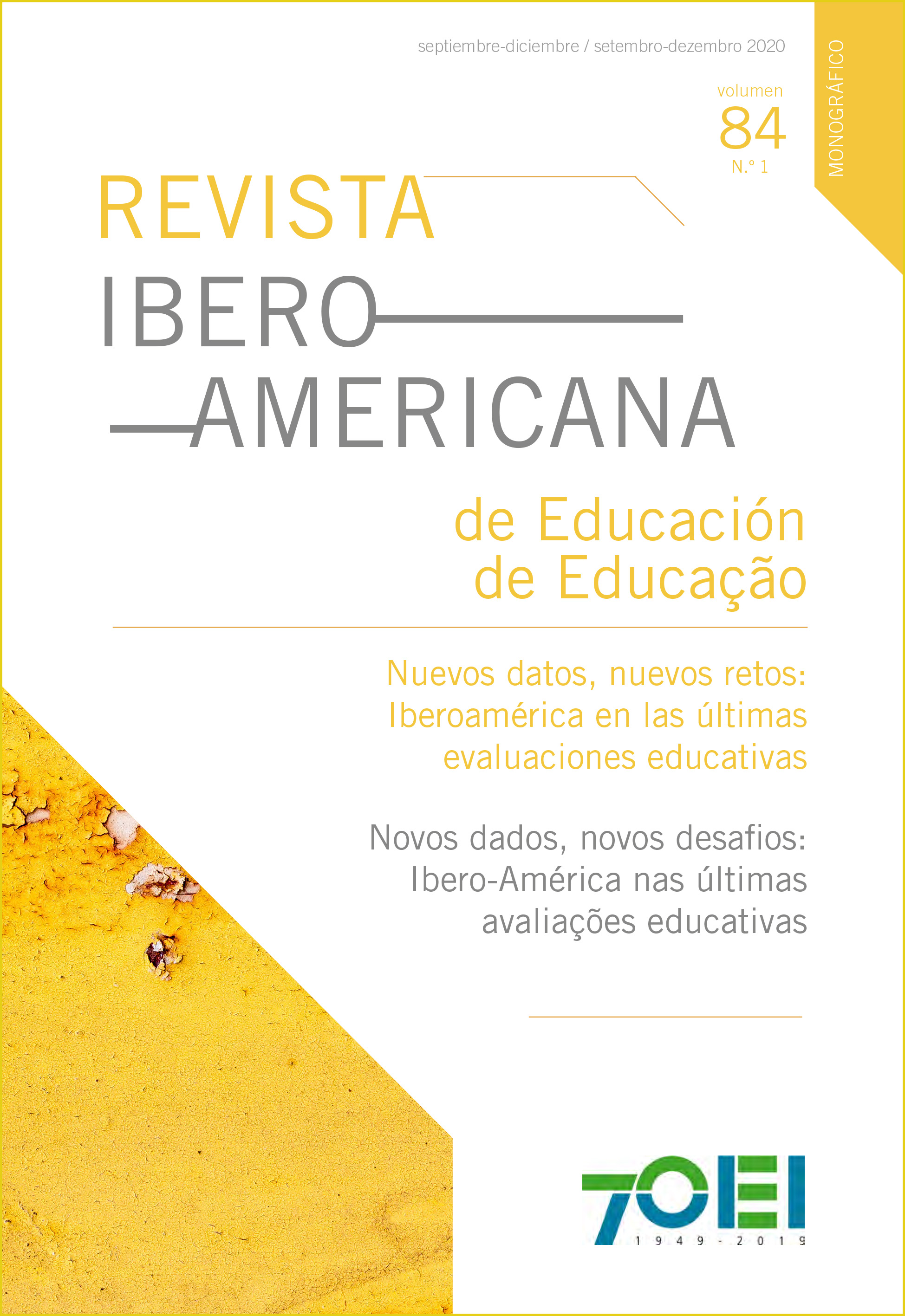Spain vs. Portugal in education. A systemic approach
DOI:
https://doi.org/10.35362/rie8414042Keywords:
Comparative education; Systemic approach; Spanish education; Portuguese education; EvaluationAbstract
As a result of the demands of the context and its rapid transformation, modern societies have been confronted with the urgent need to improve their educational systems. A useful practice for the improvement of organizations is to compare oneself with others that, starting from inferior situations, have managed to advance in a substantive way; to later try to find out how they did it. This paper takes up this strategy and adopts Portugal as an element of comparison. To do this, it starts from a systemic approach to education based on the structure: context, inputs, policies, outputs, and outcomes, which serves as a conceptual framework for selecting a broad set of indicators on which to make a sufficiently systematic comparison between the two countries, in in the field of education. The following conclusions emerge from the analysis of the differences: (a) regarding context variables, Spain is above Portugal. (b) In terms of inputs, Portugal exceeds Spain in accumulated expenditure per student and is behind in providing educational and human resources. (c) In terms of outputs and outcomes, Portugal exceeds Spain in all the indicators considered. (d) Finally, in relation to policies, the position of Portugal is clearly more advanced than that of Spain. This evidence is translated into a handful of recommendations, inspired by international consensus and validated by the success of the Portuguese case
Downloads
References
CEE (2015). Informe 2015 sobre el estado del sistema educativo. Consejo Escolar del Estado. Ministerio de Educación Cultura y Deporte. Madrid. Disponible en https://bit.ly/347Gvwr
CERI-OECD (1992). The OECD International Education Indicators. A Framework for analyses. Paris: OECD Publishing.
CERI-OECD (1994). Évaluer l´enseignement. De l´utilité des indicateurs internationaux. Paris: Éditions OECD.
CERI-OECD (2007). Comprendre l’impact social de l’éducation. Paris: Éditions OECD.
Crato, N. (2020). Curriculum and Educational Reforms in Portugal: An Analysis on Why and How Students’ Knowledge and Skills Improved. Audacious Education Purposes. How Governments Transform the Goals of Education Systems. Reimers, F.M. (Ed). Chum, Switzerland: Springer. Disponible en https://bit.ly/36frag5
European Commission (2019). Education and Training Monitor 2019. Dsiponible en https://bit.ly/3jgr9Ms
Eurostat (2020). People at risk of poverty or social exclusion by sex. Disponible en https://bit.ly/3mXOqVL
Eurydice (2015). Compulsory Education in Europe, 2014/15. Disponible en https://bit.ly/2S87geH
Levin, B. (2010). Governments and education reform: some lessons from the last 50 years. Journal of Educational Policy, 25:6, 739-747. https://doi.org/10.1080/02680939.2010.523793
López Rupérez, F. (1994). La gestión de calidad en educación. Madrid: La Muralla.
López Rupérez, F. (2014). Fortalecer la profesión docente. Un desafío crucial. Madrid: Narcea Ediciones
López Rupérez, F. (2015). “MIR Educativo” y profesión docente. Un enfoque integrado. Revista Española de Pedagogía, LXXIII(261), 283-299. Disponible en https://bit.ly/30gOTbP
López Rupérez, F. (2020). El currículo y la educación en el siglo XXI. La preparación del futuro y el enfoque por competencias. Madrid: Narcea Ediciones.
López Rupérez, F., García García, I. y Sanz Labrador, I. (2015). La extensión de la enseñanza básica hasta los 18 años. Beneficios y costes. Madrid: Fundación para los análisis y los estudios sociales. Disponible en https://bit.ly/34bYfXPf
López Rupérez, F., García García, I. y Expósito Casas, E. (2017). La calidad de la gobernanza del sistema educativos español. Un estudio empírico. Madrid: Universidad Camilo José Cela. Disponible en https://bit.ly/30ihP3l
López Rupérez, F., García García, I. y Expósito Casas, E. (2019). Liderazgo de la dirección y feedback formativo. Dos pilares básicos de la gobernanza escolar. Madrid: Universidad Camilo José Cela. Disponible en https://bit.ly/33a6KTG
López Rupérez, F., García García, I. y Expósito Casas, E. (2020). Un marco analítico para la evaluación de la calidad de la gobernanza de los sistemas educativos. Revista Iberoamericana de Educación, 83(1), 53-76. https://orcid.org/0000-0003-2613-9652
López Rupérez, F. y García García, I. (2020). A vueltas con la equidad en educación. Una aproximación empírica en la perspectiva de las consecuencias. Madrid: Universidad Camilo José Cela.
OECD (2012). Education at a Glance. OECD Indicators. Paris: OECD Publishing.
OCDE (2016). Résultats du PISA 2015 (Volume I): L’excellence et l’équité dans l’éducation. PISA. Paris: Éditions OCDE. https://doi.org/10.1787/9789264267534-fr
OECD (2018). Curriculum Flexibility and Autonomy in Portugal. An OECD review. Disponible en https://bit.ly/33cX2jr
OECD (2019). PISA 2018 Results (Volume I): What Students Know and Can Do. PISA. Paris: OECD Publishing. https://doi.org/10.1787/5f07c754-en
Parlamento Europeo (2011). Abordar el abandono escolar prematuro. Diario oficial de la Unión Europea. Resolución del Parlamento Europeo, de 1 de diciembre de 2011. Disponible en https://bit.ly/3mXRjWB
Reimers, F. & Schleicher, A. (2020). A framework to guide an education response to the COVID-19 Pandemic of 2020. Paris : OECD. Disponible en https://bit.ly/3kT9efp
Schleicher, A. (2018). Primera Clase. Cómo construir una escuela de calidad para el siglo XXI. Madrid: Fundación Santillana.
Shwab, K. (2016). Cuatro principios de liderazgo de la cuarta revolución industrial. Foro Económico Mundial. Disponible en https://bit.ly/33anQ3S
Xia, N. & S.N. Kirby (2009). Retaining Students in Grade: A Literature Review of the Effects of Retention on Students’ Academic and Nonacademic Outcomes. RAND Technical report. Disponible en https://bit.ly/3cIeShi
How to Cite
Downloads
Published
Issue
Section
License
Any authors who publish with this journal accept the following terms:















